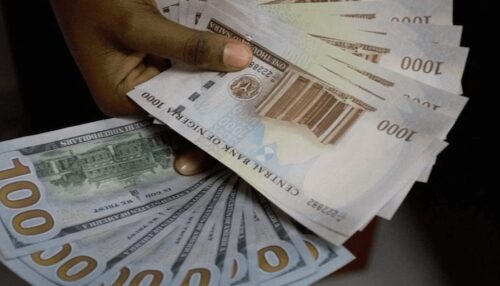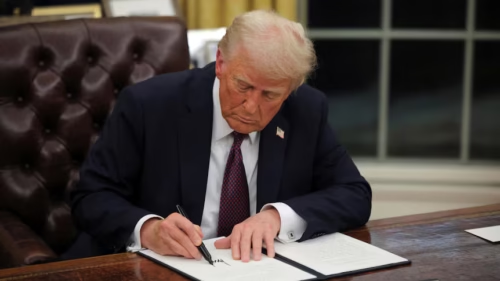
The recent appreciation of the naira is facing a new test as U.S. President Donald Trump enacts a series of tariffs that could reshape global trade dynamics.
Since taking office as the 47th president of the United States, Trump has imposed tariffs on imports from key trade partners, including Canada, Mexico, and China. While his stance on China is unsurprising, the broader implications of these measures could extend beyond American consumers, impacting economies that are like Nigeria.
Recent reports indicate that the naira climbed to an eight-month high of N1,474.78/$ in the official foreign exchange (FX) market, driven by a combination of fiscal and monetary policies aimed at stabilizing the currency. However, analysts warn that Trump’s aggressive trade policies could weaken these gains.
Bello, a financial expert explains that the goods subject to high tariffs in the U.S. could drive pressures on inflation, prompting the Federal Reserve to adopt restrictive monetary policies. Higher interest rates in the U.S. would strengthen the dollar, making it more attractive to investors and increasing the cost of holding other currencies, including the naira.
“We saw this happen in 2023 when aggressive rate hikes by the U.S. Federal Reserve led to tighter global financial markets,” Bello noted. A stronger dollar could discourage foreign investors from putting capital into Nigeria, leading to reduced inflows and potential instability in the exchange rate.
Rising interest rates could also force Nigerian businesses to contend with higher borrowing costs, further straining economic growth. However, some sectors, such as equities, may prove resilient. Bello highlights that Nigeria’s stock market, which has recorded double-digit growth since 2020, is largely driven by domestic investors, insulating it from some external shocks.
Beyond trade policies, Trump’s renewed focus on shale oil production poses another challenge for Nigeria. The U.S. shale boom has significantly altered the global oil landscape, transforming the country from a key importer of Nigerian crude to a major competitor in international markets.

If the shale production expands further, global oil supply would rise, driving prices lower. Since Nigeria’s relies heavily on oil exports for government revenue and foreign exchange, sustained low prices could weaken the naira and disrupt fiscal stability.
Aisha Mohammed, an energy analyst at the Lagos-based Centre for Development Studies, warns that declining oil revenues could trigger a chain reaction, affecting government spending, inflation, and economic growth. “Reduced oil revenue will not only strain the national budget but will also impact industries and households dependent on the oil sector,” she explains.
As Nigeria grapples with these evolving global economic shifts, policymakers must take proactive steps to safeguard financial stability. Whether the naira’s recent appreciation is a sign of lasting resilience or a temporary reprieve will depend on how effectively Nigeria adapts to the new realities of global trade and energy markets.


